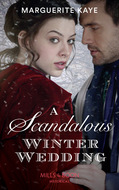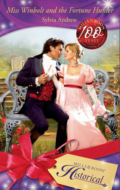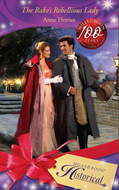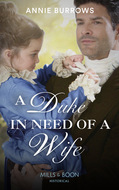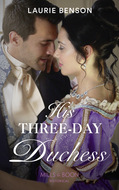Kitap dosya olarak indirilemez ancak uygulamamız üzerinden veya online olarak web sitemizden okunabilir.
Kitabı oku: «The Bride Fair», sayfa 3
Chapter Three
Who is talking?
Max turned his head slightly. At first he thought the lowered voices were coming through the window on the upstairs porch. With some effort, he turned over in the bed, realizing immediately that the conversation originated from the other side of the house.
His hands were still wrapped in spite of his restless sleep and still hurt like hell. He flexed them gingerly and immediately regretted it. Even so, the swelling seemed less, and that was something.
He lay there looking around the room. It was sparsely furnished. A four-poster bed, a dresser, a washstand, a chair and small table, somewhat tattered lace curtains, recently washed. No draperies. No rugs. No framed pictures. The wallpaper had seen better days—some kind of stylized flowers in a vase surrounded by a wreath in a pattern that repeated every few inches. A spotty mirror hung from a braided gold cord over the mantel. It tilted downward enough that he could see a dim reflection of himself lying in bed. It was not his first encounter with a well-placed mirror in a bedchamber. The high-class bordellos he’d frequented before the war were full of them. It was a shame this one would go to waste.
“Perkins!” he yelled suddenly, simply to measure his new orderly’s efficiency. He had no idea if the man were anywhere close by or not.
“Sir!” Perkins said immediately on the other side of the closed bedchamber door.
“Coffee,” Max said. “Now.”
“Yes, Sir!”
Max sat up on the edge of the bed with some difficulty, then unwrapped his hands and flexed his fingers again.
Not too bad, Miss Markham, he thought.
He stood and walked unsteadily to the window that opened on the back side of the house. He had initially been too distracted by the pain in his hands to register that everything else hurt, as well. It had been a long time since he’d participated in the kind of physical exertion necessary to put out a fire. Clearly, the days when he could subject his body to any and every kind of strain and misbehavior and not feel any aftereffects were long gone.
He moved the lace curtain aside and looked down into the backyard. The sun was up. The birds were singing, and there was a fine, cool breeze coming in through the window. Maria Markham stood on the dewy grass below and, unless the man with her lived here, she was exhibiting a flagrant disregard for the new curfew.
Max moved slightly to try to hear what they were saying, but he could only catch certain words. From the look of things, however, the conversation was not going well. Whatever verbal bouquets the man was handing out, Maria Markham was not accepting.
“—how could she be better…they need you. Why can’t you see what this is?”
The man reached out to touch her arm, and she stepped away from him.
“You break her heart,” she said. Max heard and understood that quite distinctly.
“I can’t help the way things are—” the man replied.
“Yes, you can!” Maria said, forgetting to lower her voice in her agitation. “Who can but you?”
But then she suddenly relented. “—I will,” she said. “They are always welcome—”
Max looked around at a faint knock on the door.
“In,” he said, and Perkins came in with the coffee.
“Who is that with Miss Markham?” Max asked, nodding toward the window. Even from this distance and without much to go on, he didn’t like Maria Markham’s early morning visitor. It was enough that he was breaking the curfew.
Perkins carefully handed over the tin cup of hot coffee and peered out the window to see.
“You want me to detain him, Sir?”
“No, I want you to tell me who he is.”
“That would be…Phelan Canfield, Sir. Ex-Reb artilleryman. Brother to Miss Markham’s late fiancé and well on his way to becoming the town drunk. He’s married to a friend of Miss Markham’s—Suzanne, her name is. I hear that both the Canfield boys admired Miss Markham, though. Some folks here think maybe Phelan would have turned out better if he’d married her instead of letting his brother have her—on account of she would have made something out of him. Besides that, her brothers—if they had lived—would have half killed him for the kind of misbehavior he’s been showing. Good men, her brothers, or so folks say. But you never know about these things that might have been, do you, Sir?
“Anyway, Canfield and this here Suzanne has got two children—little boys. One’s five—his daddy got to come home on horse leave one winter and that’s where he come from. The other one’s about two or so. Suzanne—now, she ain’t well enough to look after them or keep up her wifely duties, if you know what I mean, Sir. Most of the time Canfield ain’t sober—or he’s disappeared someplace and nobody knows where he got to. It’s usually jail for being drunk and disorderly or one of the whorehouses down by the railroad tracks. He ain’t got enough money to gamble or partake—but I reckon some of the girls take pity on him, him being a Reb war hero and all that.”
Max stared at his orderly. “How the hell do you know all this?”
“People talk, Sir. Alls I do is pay attention when they do it. Most of the folks here work so hard at ignoring us, I reckon they really do forget we’re around. But I ain’t deaf. You can hear all kinds of things at the bakery—it’s on the ground floor down at the hotel—Mansion House. And Miss Markham—she’s come down to the jail a time or two looking for the son of a bitch and thinking he’s been on another one of his binges and got hisself locked up. She takes care of them little boys right much and Suzanne, too. Them boys are a handful—you remember, I did mention, Sir, that this might not be the most restful place for you here.”
Max declined to comment. He held the cup precariously with both hands, savoring the warmth against his painful fingers, and sipped his coffee. After a moment he moved to the window and looked out again—at approximately the same instant Maria Markham glanced up and saw him. She immediately sent Phelan Canfield on his way and went into the house.
“Any chance of getting breakfast, Perkins?” Max asked.
“I believe it’s in the making, Sir.”
“You ‘believe’?”
“Well, Sir, I did get myself run out of the kitchen pretty quick—so I can’t be exactly sure.”
“What the hell did you do?”
“Showed up, Sir,” Perkins said. “That’s about all it took.”
“Perkins, the Markham woman is only this high,” Max said, holding up an aching hand in a fair estimation of her tallness.
“Yes, Sir, but she had this here broom and even if she didn’t use it, she was about to cry—so I just thought I’d let her win this one. And as long as I was shoved out yonder in the backyard, I got me a campfire going to make the coffee. And I seen to your mount—checked the hooves and got the farrier up here. So that’s been done. I got the wash pot filled with water and a good fire under it, while I was at it. It ought to be hot enough about now. Would you be needing it for a shave and the like, Sir?”
“I would,” Max said. “Tell Miss Markham I said to hold breakfast until I’m ready.”
Perkins made a small sound. Just enough of one to let Max know his orderly wasn’t altogether looking forward to another encounter with the daughter of the house.
“Tell her just like that, Sir?” he asked.
“Exactly like that, Perkins.”
A “shave and the like” didn’t take nearly as long as it might have. Perkins had already set up a place in a small connecting room—in what Max guessed had once been a nursery—Maria Markham’s perhaps. The orderly had the tin tub more than half filled. All that remained was carrying the hot water upstairs from the wash pot in the backyard. The biggest delay was caused by finding a wearable tunic. The one he had arrived in had numerous holes burned in it from the sparks at the fire.
Still, the wait would likely not sit well with Maria. It was yet another “inconvenience” he didn’t mind perpetrating—or so he thought until he came downstairs. She had gone to a great deal of trouble from the smell of things—fresh bread, cooked apples, fried meat of some kind—bacon or ham—and coffee.
Mr. Markham greeted him in the hall, a stately-looking man in a threadbare frock coat, if somewhat frail. Maria Markham must have taken after her mother. Max could see no family resemblance.
“Good morning, Colonel! And a fine morning it is. This way, if you please,” the old man said, leading him into the dining room. “I trust you slept well?”
“Quite well,” Max said, the lie coming easily. He had had months of practice when he was still recuperating at home after his imprisonment. Both his mother and his sister, Kate, had asked him that every morning, and every morning he had lied. The truth was that he couldn’t remember the last time he’d had a restful sleep. Or even a long one. It seemed to be the way of things. He wasn’t the only war veteran to suffer from it—particularly among the ones who had survived a prison. There was no cure, as far as he knew, save laudanum or brandy, not even an accommodating woman helped. He no longer worried about it.
“I see you’ve sustained an injury,” Markham said.
“A minor one. I am much improved this morning—thanks to your daughter. She very kindly bound my hands last night to keep the swelling to a minimum.”
The old man laughed. “My daughter? Ah, well now, that is a surprise.”
Max had the distinct impression that the surprise came not from Maria Markham’s handiness at binding wounds but from her willingness to do so for the likes of a Yankee colonel.
The dining room was as sparsely furnished as the rest of the house. The table should have had six chairs, but there were only three and three places set. The china and the silverware were clearly of good quality. The only problem was that hardly anything matched.
“If you would sit here, Colonel,” the old man said, offering him his place at the head of the table.
“I would prefer the side, Mr. Markham, if you don’t mind. I tend to linger to read and work after I eat, and I like room to spread out. I have no wish to usurp your place.”
“As you wish, Sir,” Markham said. “Maria Rose!”
She came eventually, carrying a tray heavily laden with serving bowls. They were as mismatched as the rest of the dinnerware, and apparently she was foregoing the use of the sideboard and putting everything directly on the table, because there was no one but her to serve.
Max picked up a crisply starched but much-darned napkin and tried not to smile. He understood the not-so-subtle message she was sending him perfectly, as he was meant to do. The Markhams—like the rest of the people here—had suffered for their cause and, vanquished or not, they were proud of it.
He noted, too, that the resolute Miss Markham didn’t wear her severe mourning attire at home—or at least, not precisely. She did have on a kind of black skirt, but she’d put a white blouse with it and then covered over the entire ensemble with a coarse linen pinafore of a faded violet color. It made her look young and vulnerable in a way that was not entirely unbecoming.
“Have you seen my orderly, Miss Markham?” he asked as she set a large compote of a thin, brownish liquid and a bowl of rice in front of her father.
“He is sitting on the back steps—eating.”
“I believe I mentioned that he was to assist you with the meals.”
“And I believe I mentioned that his assistance was not required,” she countered, still unloading bowls.
Her father looked from one of them to the other. “Maria—”
“I must bring the coffee, Father,” she said, disappearing through the doorway. She came back almost immediately with the coffeepot and proceeded to pour.
That done, she left the room again, and Max expected her not to return. She did, however, with a bread basket full of hot biscuits, which she placed near his elbow. Then, she sat in the only seat available—across from him.
“May I take the liberty of saying grace?” he asked just to see the expression on her face.
“Indeed, Colonel,” her father answered quickly, Max thought to head any remarks his daughter might feel compelled to make.
Max made his prayer of thanks concise and eloquent, one that would have done his clergyman great-uncle proud—if he did say so himself. Rather than bowing his head, Max kept his eyes on Maria the entire time. She looked up at him before the prayer ended—as he knew she would.
He left it to her to begin passing the bowls, and he managed to serve himself in spite of the pain in his hands.
“Tell me, Colonel Woodard,” Mr. Markham said. “Have you learned yet to appreciate our fine Southern cuisine?”
“I’m afraid I haven’t often had the occasion to try it,” he answered, still watching Maria. His experience with “Southern cuisine” had been the daily ration at the prison—moldy cornbread that was mostly ground-up cobs, and a cup of watery rice soup. On very special occasions, he had fought off other men for the privilege of eating hog entrails that had been dumped over the wall to the men in the stockade in the same way one might feed a pack of animals. And he had been grateful for the opportunity. His ration, pitiful as it was, had been the only thing he had to barter. He’d prolonged his hunger more than one time in order to purchase his desperate notion of what constituted a luxury—once a single, bloodstained page from David Copperfield.
He still had it.
But he would have to agree that Maria Markham had set an excellent table, regardless of the hodgepodge of china and utensils. She was a fine cook, but she made little attempt to eat what she had taken onto her plate. She kept halfheartedly pushing her food around with her fork and finally drank a small sip of water from her glass.
Max let Mr. Markham carry the conversation—the weather, street repairs, the impeachment woes of President Andrew Johnson. The most likely topic of conversation—the fire and the subsequent curfew—went conspicuously unremarked upon. After a time he realized that the old man was indeed not well. The effort it took for him to speak left him winded, and clearly worried his daughter. At one point he lost his breath altogether.
“Father—” Maria said in alarm.
“I am…quite…all right, Maria Rose. Don’t…fuss over me,” he insisted, and he continued with the meal if not the conversation.
Maria Markham had said when Max first arrived that she obeyed her father’s wishes. And so she did—but it was all she could do to manage it. They ate for a time in silence.
“May I ask you a question, Miss Markham?” Max said, because he thought she was about to get up and leave.
She looked up at him, her expression startled, as if she had forgotten he was there and, now reminded, had no idea what uncouth subject he might broach, regardless of her father’s presence. She also looked very pale.
“I was wondering if you are acquainted with the Howes,” he said anyway. “Major John Howe and his wife.”
“I…know them by sight,” she answered.
“I thought Mrs. Howe was a Salisburian.”
“She is—but we did not move in the same circles growing up. And especially not now,” she added.
He chose to ignore the remark. “Do the Howes live nearby?”
“The…the Howes—” She abruptly stopped. “You must excuse me, Father. I have things I must see to—”
She got up from her chair and hurriedly left the table, disappearing through the doorway into the kitchen.
Max looked at her father, but the old man clearly felt no need to explain her behavior—possibly because he couldn’t. Perkins suddenly appeared in the dining-room doorway, looking as if he didn’t quite know how he’d gotten there.
“Did you speak to Miss Markham just now?” Max asked him, because he thought it the only explanation for the man’s perplexed look.
“Yes, Sir. Very briefly. I believe the colonel needs coffee?”
The colonel didn’t, but Perkins picked up the coffeepot and poured as much as he could into the already full cup anyway.
“Anything else, Sir?” he asked.
“Stay handy,” Max said. “When Mr. Markham is done, you can clear the table. Then you can bring me my leather case. I have reading I need to do.”
Mr. Markham cleared his throat. “My daughter is sometimes very…high-strung. The war was hard on the women here.”
“The war was hard on the women everywhere,” Max said, thinking of the unmarked burial trenches and the women who perhaps still waited to hear what had become of their men.
He took a small breath and tried to let go of the animosity that threatened to overwhelm him. The war was over.
Over.
He had managed to get past the bitterness he harbored after John Howe made his solo escape from the prison. If he could put that behind him, surely he could let go of the rancor he felt for the people in this town who had, perhaps unknowingly, tolerated the mistreatment of Union prisoners.
When the old man had taken his leave and Perkins had gone to fetch the leather case, Max kept watching the door that led to the kitchen.
But there was no sign of Maria Markham.
Chapter Four
Maria heard her father slowly climb the stairs and shuffle out onto the second-story porch. He would stay there, reading, until it became too sunny for his comfort. She had a little time before he came inside again.
She heard the front door open and close—twice. The house had gone very quiet. Colonel Woodard and his sergeant major must have left for military headquarters. He would have a great deal to do his first real day in command. Perhaps he would be as late returning as he was last night.
That prospect cheered her considerably. She gave a quiet sigh and wiped her face again with a wet cloth. She was feeling better—less indisposed, at any rate. She wouldn’t have to make any kind of explanation to the colonel, but what was she going to tell her father? He couldn’t abide rudeness in his children—even if it seemed to be directed at a Yankee invader. And she couldn’t explain that she hadn’t been rude at all. She couldn’t tell him that what he mistook for impoliteness was actually the sudden and overwhelming nausea of pregnancy.
She forced herself to stand up. She couldn’t hide forever, and she had a great deal of work to do. She came quietly down the back stairs into the kitchen. The dishes had all been washed and dried and placed in neat stacks on the worktable. Had she been gone that long?
She looked around impatiently for the leftovers—food she planned to somehow circumvent the curfew and take to Suzanne Canfield. Phelan had said Suzanne was worse today; there was no way she could get anything to eat on her own. And the little boys. Who would feed them? Phelan intended to get back home through the woods—if he could keep out of the sight of the army patrols—but she had no way of knowing if he’d made it. Even if he had, he wasn’t all that reliable when it came to caring for his wife and children. Suzanne had no family here to help her, and neither did Phelan.
She kept looking around the kitchen, but she couldn’t find a single cold biscuit. No pieces of ham. No bacon. Nothing.
She walked into the dining room, thinking that perhaps the bread basket had been left on the table. Colonel Woodard was still sitting exactly where she’d left him, only now he was reading a letter. He barely looked up.
“I’ve been waiting for you,” he said when she tried to back out of the room.
She hesitated, trying to think of a way to escape. Nothing came to mind.
“What is it, Colonel?” she asked from the doorway, hoping that he only wanted something fetched or carried rather than her continued presence.
“Sit,” he said.
After a long moment she did so—she still needed the money. There was a pitcher of water and a small glass on the table, and a plate with a lemon and a knife on it—none of which she had provided.
“If you would cut the lemon,” he said, “and squeeze some of the juice into a glass of water, please.”
Please.
He didn’t toss that word around much, and she regarded him warily.
There was nothing to do but oblige. The sooner she did as he wanted, the sooner she could go.
She filled the glass, cut the lemon, picked out the seeds and squeezed in the juice, wondering all the while how much a piece of fruit this fine would cost. When she’d finished, she started to push the glass toward him.
“No,” he said. “Drink it. It’s for you.”
“I don’t need—”
“Yes, you do. It will make you feel better if you sip it slowly.”
“You practice medicine as well as head the military government?”
“I want you healthy, Miss Markham. Of course, you don’t have to follow my recommendation. We can have the army surgeon look at you—just to make sure you are not coming down with some illness which might be an…inconvenience.”
“Inconvenience to whom?”
“To me,” he said easily. “I suspect, though, that you are not ailing. I suspect you are experiencing a mild upset this morning—brought on by a late night and by the worry of having unwelcome strangers in your house—not to mention the concern you must have for your father’s health. In which case, fresh lemon juice in water will alleviate it. Please. Drink it.”
She looked at him across the table. He was studying her closely—too closely—but not in the lecherous way Hatcher had. She would have to be careful with this man. He meant what he said about understanding the people here, and he would not miss much that went on around him, regardless of his arrogance. She glanced at his injured hands, and he saw her do it.
“Yes,” he said. “I’m merely returning the favor.”
She waited as long as she dared, then took a small sip of the lemon water. It was…refreshing, and not an affront to her queasy stomach at all. She took another sip, and then another.
“Thank you,” she said, her voice low.
“You are welcome, Miss Markham. Tell me about your brothers.”
“What?” she said, startled.
“Your brothers,” he repeated.
She was so caught off guard that she still didn’t say anything.
“They were killed in the war,” he said. It wasn’t quite a question.
“Yes,” she said.
“How old were they?”
“Rob was twenty-eight. Samuel was sixteen.”
“Where were they killed?”
“Gettysburg,” she said, holding his gaze. She didn’t understand why he was asking her this—when it was obvious to her that he already knew.
“I was at Gettysburg,” he said.
She looked away, still not understanding. There was no malice in his voice and no apology or sympathy, either. It was merely a quiet statement of fact—and she could make of it whatever she would.
“Your fiancé,” he continued after a moment.
“I don’t talk about him,” she said. “Ever.” It was all she could do to remain seated.
“Then you can tell me what I asked you earlier—before you fled the room. Do Major Howe and his wife live nearby?”
“Major Howe is no longer here. I believe he’s returned to Washington.”
“Alone?”
She looked at him. “With his wife and mother-in-law, Mrs. Verillia Douglas,” she said.
“Ah, yes. Verillia. I would have liked to have been introduced to Verillia. According to Major Howe, she is quite the physician in her own right, is that not so?”
“She has helped my father on many occasions. I wish she were…”
Maria trailed off. She was barely acquainted with the Howes, but she knew Verillia Douglas well. And it wasn’t just for her father that she wished Verillia’s return, or even Suzanne. Verillia was the one woman in this town to whom she might speak of her current predicament. Verillia wouldn’t condemn her—she would help her, even if it were nothing more than to allow her a shoulder to weep on.
She realized suddenly that the colonel had said something.
“I beg your pardon?”
“I asked why Major Howe and his family left.”
“I understand there was some concern on his part about the fires—and that he had a disagreement with Colonel Hatcher. My father will know the details. I’m certain he will give them to you if you ask him.”
“Perhaps I will. Tell me, how do the people here view Major Howe’s marriage to a local girl?”
“I don’t know,” she said.
“Then how do you view it?”
“I have no opinion.”
“Because you only know them by sight.”
“Because I have no opinion,” she said evenly.
“It was a love match,” he said.
“So I’ve heard.”
“Major Howe tells me he would be dead twice over but for his wife. Apparently, it was the man that mattered to her and not his politics. All in all, a very romantic story, don’t you think?”
Maria made no comment. She was far too busy trying to fathom his intent.
It suddenly came to her. He wanted to point out to her, however subtly, that the people here—the women here—had been vanquished in more ways than one. Perhaps Major Howe’s marriage to Amanda Douglas had been a love match—but the ones she was witnessing now weren’t. They couldn’t be more mercenary, and she longed to tell him so.
She glanced at him; he was staring at her across the table.
“Feeling better?” he asked quietly.
“I feel quite fine,” she answered.
“And your friend? Your particular friend—Suzanne. How is she?”
“How did you—”
She broke off. Of course. He had been listening at the upstairs window. The question now was how much he had heard and what he would do about it.
“I assume she is not well,” he continued. “If her husband would chance being arrested to come here—on her behalf. Is that not so?”
Maria ignored the question and asked one of her own.
“How long will the curfew be in effect?”
“The curfew doesn’t apply to you—if you need to see about your friend. I will write you a pass.”
“Why?” Maria asked pointedly.
He held up his bruised hands. “I owe you a favor.”
“I believe that was canceled out with the lemon.”
“Perhaps. But you see, I want you in my debt, Miss Markham, rather than the other way around. I believe our association will go more smoothly if you are. I think you honor your debts. I think such things matter to you.”
She didn’t know whether to be insulted or flattered.
Yes, she did. Without a word, she abruptly stood and walked out of the room, all the while expecting him to object to her leaving.
But he didn’t say anything, and she didn’t stop until she reached the kitchen. She kept pacing around the room, trying to collect her thoughts. Then, she sat down at the worktable, only to get up again. She did not understand this man. Why would he extend to her what anyone would call a kindness—and then go out of his way to make sure she didn’t mistake it for that? Were they both to keep some kind of running tally of favors paid and favors owed?
She gave an exasperated sigh. He had offered to help her. The offer itself—and the reason for it—had been plainly stated. But it was what he did not say that she found so vexing. He could and would help her—and the only impediment would be that her animosity for him and his kind was more important to her than her “particular friend,” Suzanne.
She could hear a commotion at the front of the house: men—soldiers—coming in from the outside.
Officers.
She could tell by the banter. It was the same game of Who’s The Better Man? that the enlisted men engaged in everywhere one went, except that theirs, while no less biting, was more sophisticated and subtle.
She looked anxiously toward the doorway at a sudden burst of laughter, wondering where she could go to escape. Hatcher hadn’t held any meetings with his staff here in the house, but clearly that was not Colonel Woodard’s plan. She could hear a number of them clumping up the stairs—to see her father on the upstairs porch from the sound of it. It would please him to have visitors, the only visitors possible thanks to the curfew.
And her kitchen was about to be invaded, as well. She looked around in alarm as one of them came in through the back door.
“Well, well, well, what have we here?” he said loudly. She moved toward the back stairs, but he stepped into her path.
“I don’t believe you answered me,” he said with an all too familiar smile.
She didn’t return it. She stood there, not quite sure what to do.
“Pardon me, Major De Graff, Sir,” the orderly, Perkins, said in the doorway. “The colonel has remarked particularly upon your absence.”
“Yes. Quite right. Thank you, Sergeant Major.”
“My pleasure, Sir,” Perkins assured him. He waited until the major was on his way to the dining room. “Miss Markham, the colonel needs more chairs. He asks—”
“Tell the colonel there are no more chairs for the dining room—General Stoneman’s raiders used them for firewood,” she said.
“I’ll do that, miss,” he said. “Please don’t run off anyplace. I’ll be right back.”
Maria was feeling queasy again, too queasy to run anywhere other than the back door. She stepped outside, hoping some fresh air would help. If it didn’t, at least there would be no floor to mop.
The yard seemed to be filling up with Yankees, as well. Several tents had been pitched on the grass since she’d last looked out, and four men were working diligently to make a much larger fenced-in place for their horses than she had for her buggy horse, Nell. And it was much too close to the vegetable garden for her liking. She moved to where they couldn’t see her, and she could hear Perkins calling her.
She didn’t answer.
“There you are, miss,” he said, coming outside.
“What is it now?” she asked.
“The colonel says to tell you he has changed his mind about writing out that pass—no, now, don’t go thinking he’s breaking his word or it’s got anything to do with the chair situation,” he added quickly, apparently because of the look on her face.
“The colonel—he’s only just got here, see, and some of these men—well, they didn’t get a lot of discipline under Hatcher’s command—like that there Major De Graff. Colonel Woodard is thinking the patrols might not accept the pass as being official. He says to tell you he will see you about it later.”


